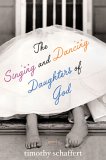Summary | Excerpt | Reviews | Readalikes | Genres & Themes | Author Bio

1.
To get through the afternoons that wound into early evenings,
driving a school bus along long country roads and driveways, Hud kept slightly
drunk. He sipped from an old brown root-beer bottle he'd filled with vodka.
There'd been a few times in the past when he'd gotten too drunk, when he'd
swerved too much to avoid a raccoon, and even once a sudden hawk swooping too
low. He made himself sick to think how he'd once nearly driven the rickety bus
in all its inflammability into an electrical pole. He knew what an ugly
notoriety such an accident would bring him. The whole world, Hud thought,
likes to mourn together and hate together when it can.
There was a man in town named Robbie Schrock, who, like some
fairy-tale hag, had murdered his own two boys with rat-poisoned candied apples
he'd dropped into their Halloween sacks. When the children died, Robbie
Schrock cried on the TV news and blamed the neighbors, and the whole little town
cried with him, shocked by the inhumanity of some people. Robbie Schrock
eventually confessed, and shocked the town all over again. The state tried and
sentenced him and gave him the chair.
Today was the afternoon of the execution, and some of the
children on Hud's bus celebrated by dressing up in Halloween costumes, though
it was only early September. One boy wore a bandanna and a pirate's eye patch
pushed up on his forehead. Another boy wore an Indian headdress and a
breastplate made of sticks and feathers. A little girl was a Belgian nun in a
pale blue habit and a winged wimple folded from newspaper.
Hud, disturbed by what he thought to be morbid spectacle, took a
last shot-back of vodka from the root-beer bottle. He looked in the rearview
mirror to the two boys sitting behind him. Both were dressed up in churchy blue
suits, their faces painted a pale gray.
"What are you supposed to be?" Hud asked.
"We're the murdered Schrock boys," they said, their
voices in tired and rehearsed unison.
"You're the worst of them all," Hud mumbled. He felt
compelled to write a song for Robbie Schrock, though he'd hardly known the man
and, of course, did not condone his crime. Whistling, Hud drove with one hand,
and with the other he wrote down key words to the song coming together in his
head. He wrote "lonesome" and "divorce" and
"weakly" in ink on the leg of his jeans.
He understood something of Robbie Schrock's circumstances. Hud's
newly ex-wife, Tuesday, at times was full of vindictiveness. For a short while
she had conspired to keep Hud's daughter away from him, judging him a drunk
and a misfit and unworthy of even the few decent things this worthless world
offered him. Robbie Schrock, his babies taken away, probably in an ugly divorce,
probably left with only an occasional weekend or an occasional holiday with his
children, wanted the whole world to know what loss can really do to a person.
Hud could sympathize.
Though he would never hurt his own eight-year-old, his adorable
Nina, he had thought about stealing her away, about painting his car a different
color and driving and driving until they found some suitable no-place. They'd
wear fake glasses, and when they spoke to the people at the gas stations and
grocery stores, they'd cover their mouths with handkerchiefs to disguise their
voices. He'd change the part in his hair and go by the name of some other Paul
Newman character—Luke, maybe. Maybe Butch. Nina could choose her own name,
would probably choose "Jessie"; that was what she named all her dolls.
Whenever with Nina, and only with Nina, Hud felt calm and
attentive, and he thought if she was his all the time, he'd be a better man. A
few weeks before, Tuesday had let Hud have Nina for an afternoon in his
apartment above the shoe repair shop on the town square. Hud and Nina went up on
the flat roof and harvested the tomatoes he'd grown in pots. Afterward, after
eating some, Nina lay back to nap, seeds on her cheeks, and asked him to sing a
song about her. He sat so his shadow kept the vicious sun from her skin, and he
plucked a tune from his guitar. He called it "Nina Is All I Need,
Really," and as she drifted off, he sang about every aspect of her face,
giving her nose, her pink lips, the red freckle on her neck, each its own
separate piece of melody. This could be why people have children in the first
place, he thought.
From The Singing and Dancing Daughters of God by Timothy Schaffert. Copyright Timothy Schaffert 2005. All rights reserved. No part of this book maybe reproduced without written permission from the publisher, Unbridled Books.
The moment we persuade a child, any child, to cross that threshold into a library, we've changed their lives ...
Click Here to find out who said this, as well as discovering other famous literary quotes!
Your guide toexceptional books
BookBrowse seeks out and recommends the best in contemporary fiction and nonfiction—books that not only engage and entertain but also deepen our understanding of ourselves and the world around us.